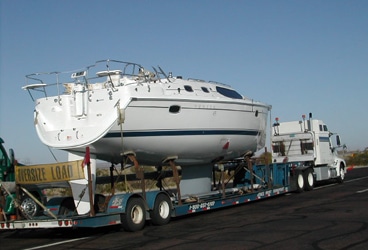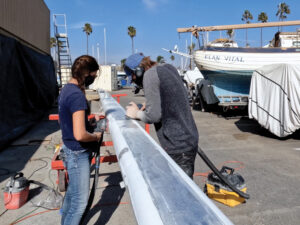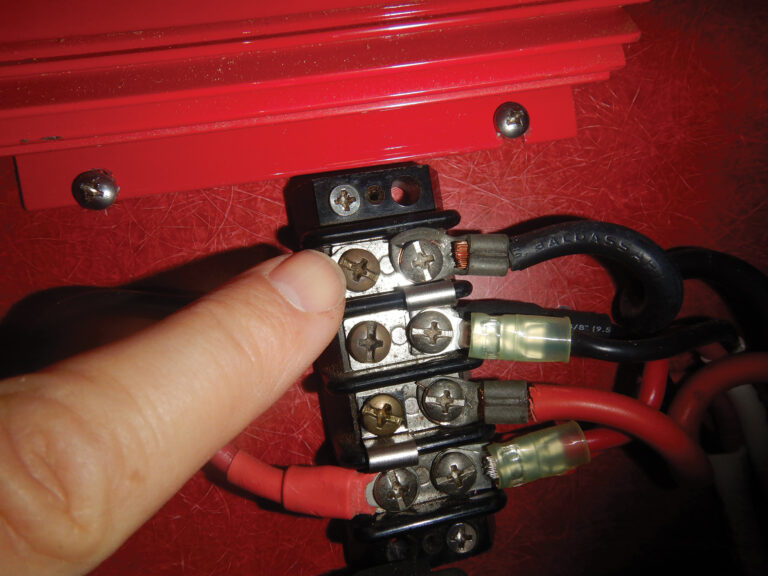
Last year, Steffen Schmidt wanted to move his 37-foot sailboat from Seattle to Rhode Island. Schmidt was not unfamiliar with hiring boat transportation services, and had done it once before with no issues. But this time was different: the boat was delivered in Wickford, Rhode Island with its mast gashed and mangled; the prop and cutlass bearing damaged. Then problems occurred in getting compensated for the damages. How can a boat owner looking to transport their boat over the road avoid an experience like Schmidt’s? Boat Owners Association of The United States (BoatUS) has four tips:
1. Find a boat transportation specialist: It’s best to use a shipper that specializes in boat transport. Request copies of DOT or state license documents and cargo insurance – reluctance to provide this information is reason enough to look elsewhere. You can also check a company’s history of inspections, crashes and the status of commercial carriers’ licenses at http://safer.fmcsa.dot.gov/companysnapshot.aspx. Had Schmidt checked here, he would have found his shipper had high percentage of failed truck inspections – a red flag. All transportation agreements should be in writing, with complete information about costs, taxes, tariffs, scheduling, security, and pickup and delivery locations, as well as rules about refunds for cancellations or delays. Make sure you read and understand the shipper’s contract.
2. Prepare the boat for shipping: “When shipping overland, most insurance claims come from poor preparation – not from hitting bridges,” says BoatUS Director of Consumer Affairs Charles Fort. Consider that your boat may be traveling down the highway in hurricane-force winds and experience road vibration for days. To help prepare, Fort strongly advises boat owners use an experienced prepper and consider hiring a marine surveyor for the loading and arrival of the boat, as they know load points and can also document damage. Also take lots of pictures with the date imprinted, just in case you need prove your case for compensation.
3. If something does go wrong, document it: It’s the boat owner’s responsibility to document any damage upon arrival and unloading. Don’t let a trucker depart without acknowledging in writing any damage on the “condition of cargo” documents and share copies. This is where more photos can help your case. And call your insurance company immediately if any damage is noted.
4. A word about online bidding websites: The BoatUS Consumer Protection Bureau has received numerous complaints from members who used bid-type clearinghouses to find transportation service providers. For a fee, the websites allow you to enter your information and receive bids from several transport providers. Unfortunately, the websites don’t verify or validate the claims about experience, insurance coverage, and licensure made by trucking companies that are bidding for your business. They also won’t help if you have problems with the shipper. If you decide to use such a service, use the same diligence you would if you called a shipper directly. BoatUS members have access to the BoatUS Consumer Protection Complaint Database and can also check for any record of complaints.
To see more detailed information on boat transport, go to: BoatUS.com/boattransport.








